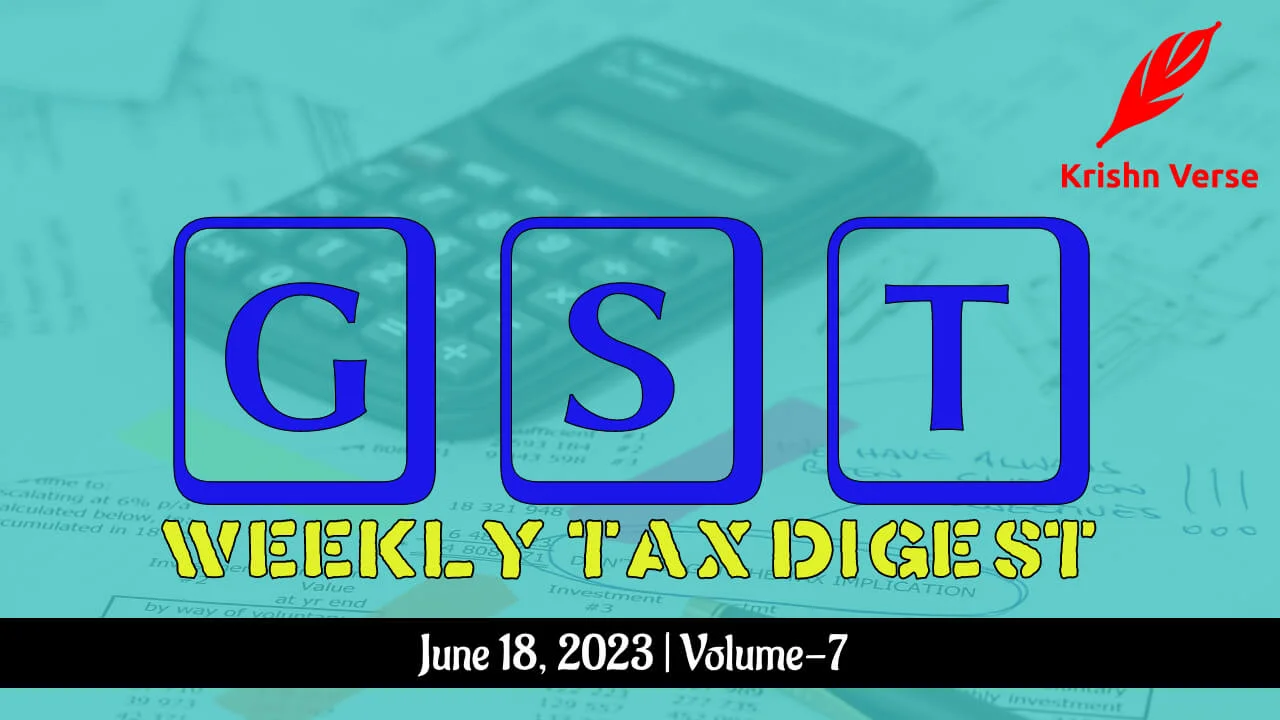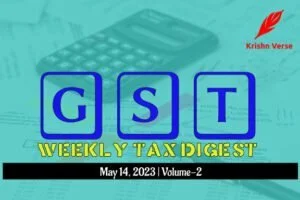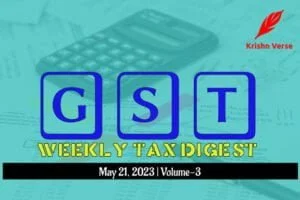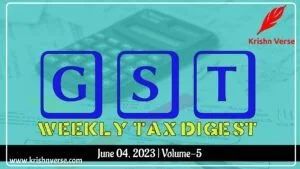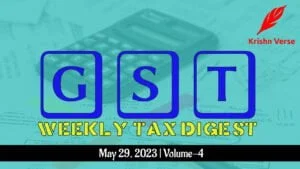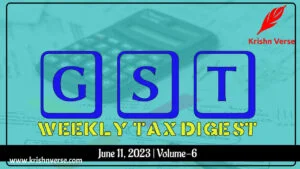Explore the Path of Tax Enlightenment with GST Weekly Digest June 2023 Vol-7! Uncover the freshest tax updates, breaking news, and enlightening insights that will empower you. This edition takes you on a journey through a range of topics, from significant highlights of GST council meetings to the latest developments in GST returns and groundbreaking e-invoicing updates. Stay ahead of the game and dive into our comprehensive weekly digest to stay informed, empowered, and ready to conquer the tax world!
Digest Period: 11/06/2023 to 17/06/2023
GST – Sunday, 11th June, 2023
Finance Ministry Initiates Process for New Convenor of GST Rate Rationalisation GoM

The finance ministry has started the consultation process for selecting a new convenor for the GST rate rationalisation Group of Ministers (GoM).
The position has been vacant since the change of government in Karnataka. Karnataka is expected to remain a member of the GoM, and the convenor will be chosen through consultation among the GoM members.
The GoM was set up to simplify the rate structure and enhance GST revenues. An interim report proposing tax rate changes was submitted by the GoM and accepted by the GST Council.
GST – Monday, 12th June, 2023
Government Introduces Consolidated Pre-Filled GST Returns for Enhanced Compliance
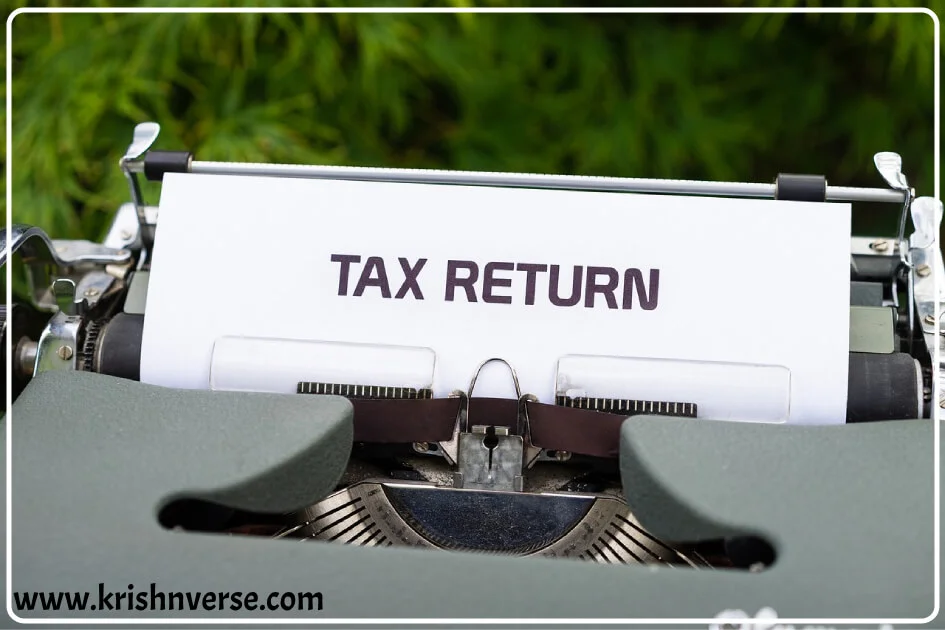
The government is revolutionizing the GST filing process with the introduction of consolidated pre-filled GST return forms, similar to the Annual Information Statement (AIS) used by the Income Tax department. This innovative feature will enable taxpayers to access their transaction details and e-invoices, ensuring accurate tax liabilities.
Developed by the Central Board of Indirect Taxes and Customs (CBIC), the consolidated pre-filled form will include an e-verification feature to address any discrepancies in data prior to filing returns, minimizing errors and reducing the scope of litigation.
Expected to be launched by the end of the year, this new facility aims to streamline the GST filing process, enhance compliance, and eliminate the hassle of uploading numerous documents. It is estimated to decrease the time and cost of e-filing by 60%.
The government has been actively working on automation and data integration, such as capturing more information from taxpayers through E-Invoices, syncing financial data from banks and NBFCs, and sharing data with the income tax department. Furthermore, plans are underway to integrate GSTN with the country’s financial data sharing network, Account Aggregator, by July 1.
These initiatives mark significant advancements in GST compliance and will empower taxpayers with a simplified and efficient filing experience.
Union Minister Gadkari Proposes Tax Policy to Incentivize Alternative Fuels and Curb Fuel Consumption

Union Minister of Road Transport and Highways, Nitin Gadkari, suggests implementing a tax policy in line with global practices to incentivize alternative and flex fuels while imposing higher taxes on fuel-intensive vehicles.
Gadkari highlights the existing incentives for low-emission vehicles and emphasizes the need for further decisions by the Finance Minister. He mentions that electric vehicles are preferred due to their cost-effectiveness, pollution-free nature, and domestic production. However, challenges remain, such as the higher cost of electric vehicles compared to traditional fuels.
Gadkari also highlights India’s efforts in renewable energy, including solar power and upcoming initiatives in green hydrogen. He stresses the importance of reducing dependence on fossil fuels and aims for carbon neutrality by 2070.
The Minister discusses the potential for various regions in India to adopt different technologies based on available resources, such as CNG and LNG from crop stubble and an ethanol-based economy.
The automobile industry’s significant contribution to the economy and job creation is acknowledged, with plans to expand its value and transition to BS-VII emission standards.
Gujarat High Court Upholds GST Authorities’ Power to Conduct Search and Seizure in SEZs
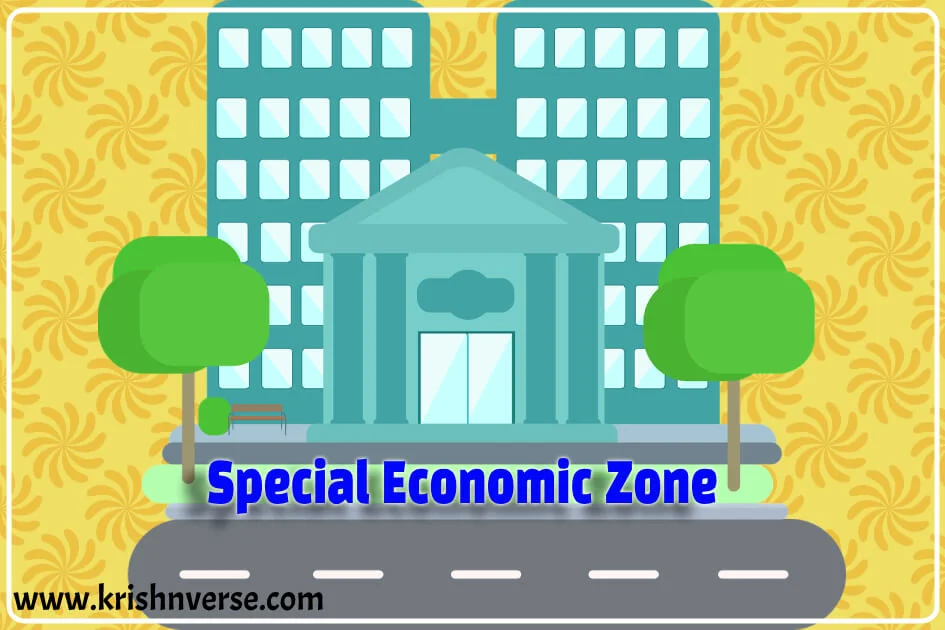
The Gujarat High Court, in the case of M/s. RHC Global Exports Pvt. Ltd. v. Union of India, affirmed that GST authorities have the power to conduct search and seizure against businesses operating in Special Economic Zones (SEZs). The court also imposed a cost on the petitioner for misusing the due process of law.
Facts:
M/s. RHC Global Exports Pvt. Ltd., an SEZ-based gem and jewelry business, was accused of fraudulently availing Input Tax Credit (ITC) and using it for tax payment. The GST authorities conducted searches and seizures at the petitioner’s business and residential premises, while another agency seized documents from their Mumbai premises. The petitioner challenged the proceedings, arguing that as an SEZ unit, they were exempt from GST investigations.
Held:
The court noted that under the SEZ Act, authorized officers can conduct searches, seizures, and investigations within SEZs without prior intimation. It clarified that supplies to or by SEZ units are considered interstate trade under the IGST Act. The court concluded that SEZ units are not exempt from GST investigations and upheld the actions of the Revenue Department. Additionally, the court imposed a cost of INR 10,000/- on the petitioner.
Mandatory 2-Factor Authentication for Taxpayers with AATO above 100cr from July 15, 2023
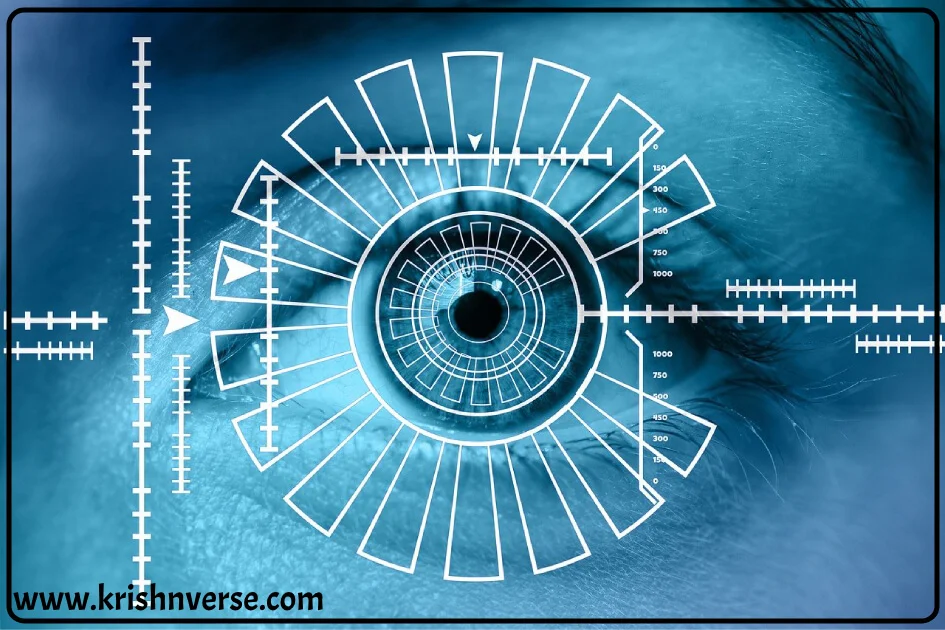
The National Informatics Centre (NIC) has announced that starting from July 15, 2023, all taxpayers with Aggregate Annual Turnover (AATO) above 100 crore will be required to use 2-Factor Authentication for logging into the e-Way Bill and e-Invoice system.
To enhance system security, the authentication process will now include an OTP in addition to the username and password. Taxpayers can receive the OTP through SMS, the ‘Sandes’ government messaging app, or the ‘NIC-GST-Shield’ mobile app. The NIC-GST-Shield app can be downloaded from the e-Way Bill/e-Invoice portal and generates OTPs without requiring an internet connection or mobile network.
Taxpayers must register for 2-Factor Authentication by confirming their registration in the e-Way Bill system’s Main Menu. Once registered, users will be prompted to enter the OTP along with their username and password during login.
The authentication process is applicable to individual user accounts, and sub-users under GSTIN will have separate authentication based on their registered mobile numbers in the system. The same authentication applies to both the e-Way Bill and e-Invoice systems.
GST – Tuesday, 13th June, 2023
Substance Abuse Disorder Treatment Not Exempt from GST: GST-Authority for Advance Rulings
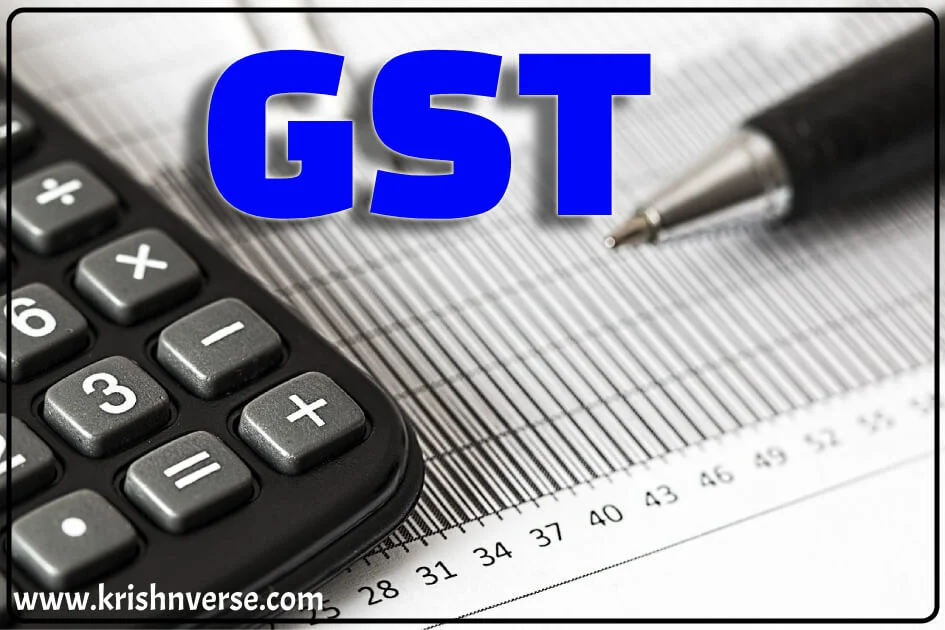
The GST-Authority for Advance Rulings (AAR), Rajasthan, has ruled that the treatment of outpatients suffering from substance abuse disorders does not fall under the category of ‘healthcare services’ exempt from GST.
Sanjeevani Psychiatric Clinic, an allopathy facility, argued that their treatment involves medical examination, counselling, and prescription of medicines by psychiatrists, with the supply of medicines considered an integral part of the treatment.
However, the AAR bench determined that the clinic provides both services (examination and counselling) and goods (medicines), and while healthcare services are exempt from GST, the supply of medicines to outpatients is not part of a tax-exempt composite supply.
The AAR also made a distinction between substance abuse disorder treatment and mental health services, emphasizing that the former is not covered by the GST exemption notification.
Punjab and Haryana High Court Orders Return of Payment in Search Proceeding

In the case of M/s. Samyak Metals Pvt. Ltd. v. Union of India and Others, the Punjab and Haryana High Court directed the Revenue Department to return the amount paid by the assessee during a search proceeding where neither DRC-04 nor a notice under Section 74(1) of the CGST Act was issued.
The petitioner, engaged in manufacturing aluminum ingots, had its premises searched, and the Revenue Department demanded payment in lieu of claimed input tax credit. The petitioner paid the amount but did not receive any acknowledgment or notice.
The court ruled that the payment was not voluntary and the Revenue Department failed to follow the necessary procedures. It ordered the return of the amount paid with interest.
GST – Wednesday, 14th June, 2023
Civic Body to Sell Newly Constructed Properties on Sale Deeds to Avoid GST

The civic body has decided to sell its newly constructed properties on sale deeds instead of auctioning them on a 99-year lease. This decision aims to avoid paying 18% GST on property auctions based on lease deeds, excluding open plots.
The standing committee of the Ahmedabad Municipal Corporation (AMC) will decide on selling eight shops in the newly constructed EWS scheme in Chandkheda. Meanwhile, the AMC had previously published an auction notice for 68 shops in the Sindhu Bhavan parking complex on a 99-year lease, which would incur a GST of Rs 36 crore.
Following a request from the Gujarat Chapter of CREDAI, the AMC resolved to adopt AUDA’s policy of selling properties on a sale deed instead of a lease deed. This move comes as a dispute with the state GST department continues regarding the applicability of GST on lease deed auctions.
CBIC Issues Guidelines to Prevent Fake GST Registrations
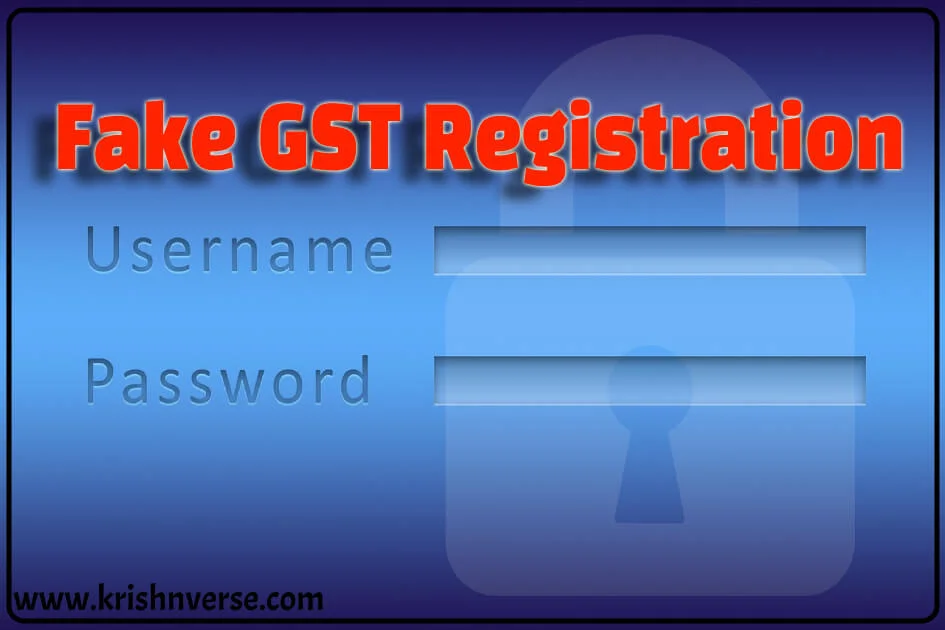
The Central Board of Indirect Taxes and Customs (CBIC) has issued important guidelines, dated June 14, 2023, for processing applications for GST registration. These guidelines aim to address the issue of fake or bogus registrations, which have been used for fraudulent activities, including passing on fake input tax credit.
Instances of obtaining fake registrations have been observed, where unscrupulous individuals misuse identities and forge documents. To combat this problem, the CBIC has instructed tax officers to strengthen the verification process for registration applications.
Key guidelines include:
1. Scrutiny of Documents: Tax officers should carefully examine the documents submitted by applicants, ensuring they are legible, complete, and relevant. Address details and corresponding documents should be closely scrutinized, and their authenticity cross-verified from publicly available sources.
2. Risk Rating: The Directorate General of Analytics and Risk Management (DGARM) conducts risk rating of registration applications based on data analytics. Tax officers should consider the risk rating while verifying and processing applications, paying special attention to those with a high-risk rating.
3. Previous Registrations: Tax officers should check if the applicant has previously obtained registrations on the same PAN within the same state or other states. Compliance records and the status of previous registrations should also be assessed.
4. Deficiency in Applications: If an application is found to be deficient or requires clarification, the proper officer must issue a notice electronically to the applicant, requesting additional information or documents.
5. Physical Verification: In cases where Aadhaar authentication is not conducted or is inconclusive, tax officers should initiate physical verification of the place of business. A physical verification report, along with other relevant documents, should be uploaded on the system.
6. Timely Processing: Strict adherence to prescribed time limits is essential for processing applications. Applications should not be approved on a deemed basis due to delayed action by tax officers.
7. Post-Registration Verification: Cases approved on a deemed basis or with a high-risk rating should be communicated to the concerned jurisdictional Commissionerate for subsequent physical verification of the place of business. Non-existent or fictitious registrations should be promptly addressed.
8. Supervision and Remedial Actions: Principal Chief Commissioners and Chief Commissioners should closely supervise the processing of registration applications and take subsequent remedial actions as necessary.
These guidelines aim to strengthen the verification process for GST registration applications, effectively tackling the issue of fake registrations and fraudulent activities related to input tax credit.
Delhi High Court Sets Aside Show Cause Notice, Restores GST Registration
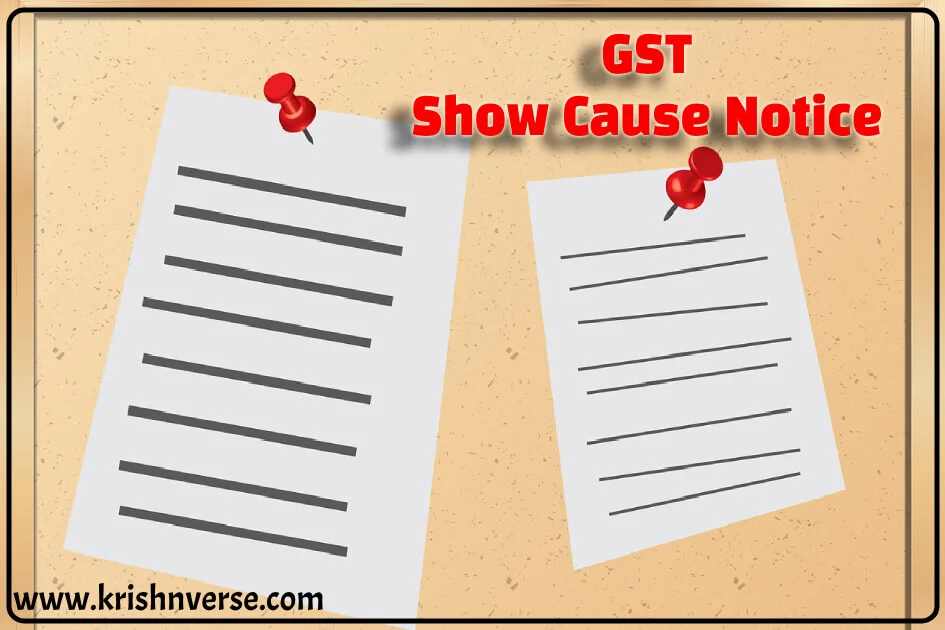
In the case of Rishiraj Aluminium Pvt. Ltd. v. Goods and Services Tax Officer [W.P.(C) No. 4125 of 2023 dated April 17, 2023], the Hon’ble Delhi High Court ruled that the show cause notice (SCN) for the suspension and proposed cancellation of the petitioner’s GST registration was invalid due to insufficient disclosure of reasons.
Facts:
M/s Rishiraj Aluminium Pvt. Ltd. received an SCN dated March 13, 2023, suspending its GST registration and calling for a response regarding the proposed cancellation. The reason given in the SCN was “Ceased to be liable to pay tax.”
Issue:
Was the SCN valid despite the lack of sufficient disclosure regarding the suspension of GST registration?
Held:
The Delhi High Court, in W.P.(C) No. 4125 of 2023 dated April 17, 2023, made the following rulings:
1. The SCN must clearly state the reasons for proposing adverse action to enable the noticee to respond effectively.
2. As the SCN did not provide any intelligible reason for the proposed cancellation, the petitioner was unable to respond adequately.
3. The court set aside the show cause notice and restored the petitioner’s GST registration.
GST – Thursday, 15th June, 2023
Indirect Tax Administration Targets 50,000 GST Audits to Boost Compliance and Tax Base
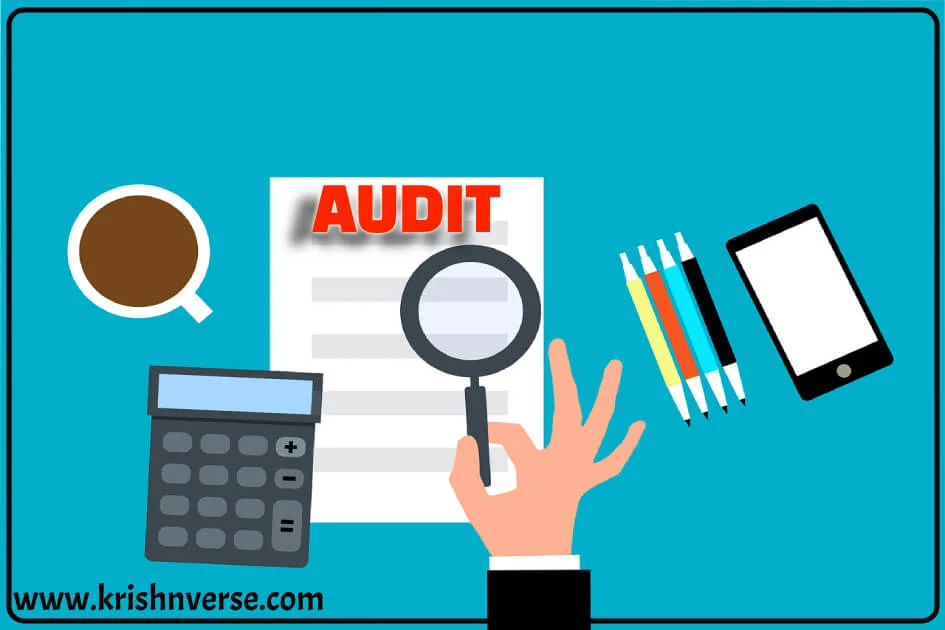
The Central Board of Indirect Taxes and Customs (CBIC) plans to conduct 50,000 goods and services tax (GST) audits in the current fiscal year to enhance compliance and expand the tax base.
In the previous year, the CBIC conducted 30,000 audits and uncovered tax evasion worth ₹17,000 crore, recovering ₹3,060 crore. The CBIC aims to address previous years’ cases alongside the new audits based on risk parameters.
GST audits scrutinize sales, taxes paid, refunds claimed, and input tax credits to identify any inconsistencies. A recent special drive flagged over 10,000 cases allegedly involved in generating fake registrations for bogus input tax credits, leading to the detection of around ₹7,000 crore in bogus credits.
To prevent misuse and expand the tax base, the CBIC plans to tighten registration verification processes and increase compliance management efforts. Sector-wise, certain areas such as metal and plastic scraps, waste paper, manpower supply services, and advertising services have been flagged for higher instances of bogus bills.
GST – Friday, 16th June, 2023
GSTN Advisory: Enablement Status for Taxpayers in e-Invoicing
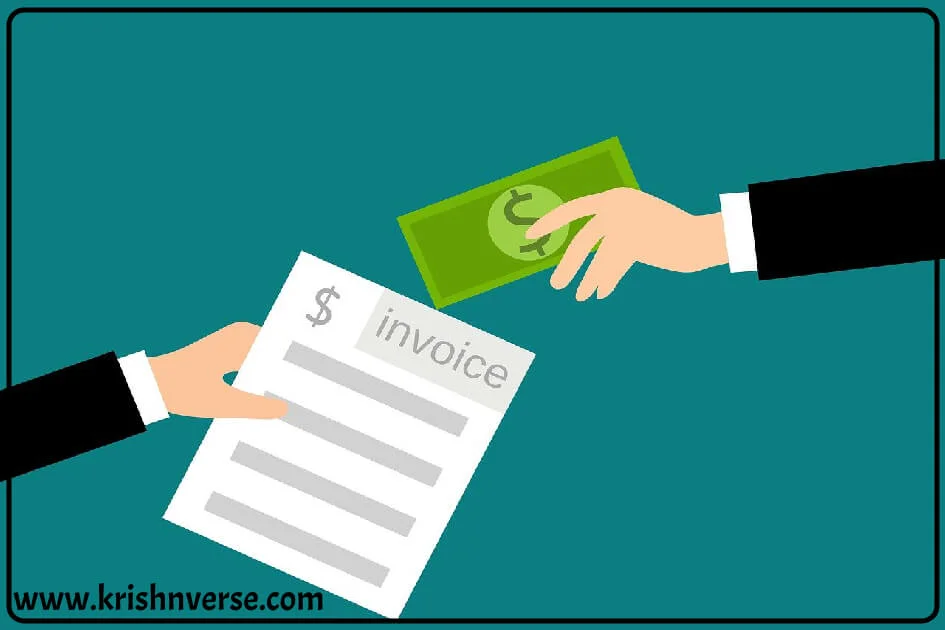
The Goods and Service Tax Network (GSTN) has issued an advisory regarding the enablement status for taxpayers in e-Invoicing, following Notification No. 10/2023 – Central Tax dated May 10, 2023. The threshold for e-Invoicing in B2B transactions has been reduced from 10 crores to 5 crores, effective from August 1, 2023.
All eligible taxpayers with an Aggregate Annual Turnover (AATO) of 5 crores and above, as per GSTN records in any preceding financial year, have been enabled for e-Invoicing on all six IRP portals, including NIC-IRP. Taxpayers can check their enablement status on the e-Invoice portal at https://einvoice.gst.gov.in.
While the enablement status does not impose a legal obligation to use e-Invoicing, taxpayers should verify their liability to generate IRN based on applicable notifications and their specific circumstances.
Taxpayers are encouraged to register and utilize the sandbox testing facility available at the IRP portals to familiarize themselves with the e-Invoice reporting mechanism and ensure a smooth transition.
It is the responsibility of taxpayers to confirm if they fulfill the conditions outlined in the notification/rules, regardless of their listing on the e-Invoice portal based on turnover reported in GSTR-3B. Taxpayers not auto-enabled on the portal can self-enable for e-Invoicing using the provided functionality.
GSTN emphasizes that all eligible taxpayers should acquaint themselves with the e-Invoicing requirements and take necessary steps to ensure compliance with the new threshold.
GST – Saturday, 17th June, 2023
Madhya Pradesh High Court Quashes Order Due to Lack of Personal Hearing Details

The Madhya Pradesh High Court, in the case of Concord Tieup Pvt. Ltd. v. State of Madhya Pradesh, quashed an order and ordered a fresh hearing.
The court found that the show cause notice issued did not include the necessary details of date, time, and venue for a personal hearing. The court held that the Revenue Department cannot pass an order based on such a notice without providing the required information.
The matter was remitted back to the Deputy Commissioner for a fresh order after granting the petitioner a personal hearing.
GST Council Considers Penal Action for Fake GST Bills to Curb Evasion

The Goods and Services Tax (GST) Council is set to discuss penal measures against entities involved in the fake GST invoice racket to combat tax evasion.
Proposed measures include increased penalties, mandatory physical verification of premises, and suspension of GST registration for repeat offenders. The Central Board of Indirect Taxes and Customs (CBIC) has identified 60,000 suspicious GST registrations, with 40,000 already undergoing verification.
Additionally, authorities have discovered 10,000 fake GST registrations and cases of wrongfully claimed input tax credit worth ₹15,000 crore. Recent crackdowns in Noida and Indore have revealed an additional 6,000 fake GST registrations and ongoing investigations into fake input tax credit.
Karnataka Government Requests GST Frauds to be Included in Indian Penal Code

The Karnataka state government has urged the Central government to classify GST frauds under the Indian Penal Code (IPC) instead of the current classification under the Income Tax Act.
The request was made during a meeting with department officials, according to Law and Parliamentary Affairs Minister H K Patil. The state government has expressed concerns about GST payment transparency and has called for necessary amendments to ensure accessible information.
Frequently Asked Questions (FAQ)
What is the significance of the Finance Ministry initiating the process for a new convenor of GST Rate Rationalisation GoM?
The Finance Ministry initiating the process for a new convenor of GST Rate Rationalisation GoM is significant because the GoM plays a crucial role in simplifying the rate structure and enhancing GST revenues. The vacant position is being filled to ensure the continuity of these efforts.
What is the new feature introduced by the government to enhance GST compliance in the filing process?
The government has introduced consolidated pre-filled GST return forms, similar to the Annual Information Statement used by the Income Tax department. This feature allows taxpayers to access their transaction details and e-invoices, ensuring accurate tax liabilities. It streamlines the filing process, enhances compliance, and reduces the time and cost of e-filing.
What tax policy has Union Minister Nitin Gadkari proposed to incentivize alternative fuels?
Union Minister Nitin Gadkari has proposed a tax policy that incentivizes alternative and flex fuels while imposing higher taxes on fuel-intensive vehicles. This policy aligns with global practices and aims to promote cost-effective, pollution-free, and domestically produced electric vehicles, among other alternative fuel options.
Can GST authorities conduct search and seizure in Special Economic Zones (SEZs)?
Yes, GST authorities have the power to conduct search and seizure against businesses operating in Special Economic Zones (SEZs). The Gujarat High Court affirmed this power in the case of M/s. RHC Global Exports Pvt. Ltd. v. Union of India.
Will taxpayers with an Aggregate Annual Turnover (AATO) above 100 crore be required to use 2-Factor Authentication?
Yes, starting from July 15, 2023, all taxpayers with an AATO above 100 crore will be required to use 2-Factor Authentication for logging into the e-Way Bill and e-Invoice system. This authentication process includes an OTP in addition to the username and password.
Disclaimer
We strive to provide you with accurate, reliable, and up-to-date information sourced from credible resources. We take utmost care in our research and presentation. However, it is important to note that information can evolve and change over time, and there is a possibility that some details may have been missed or altered since the time of publication.
We sincerely apologize for any errors or omissions that may have inadvertently occurred despite our best efforts. This article is intended for informational purposes only and should not be considered as professional advice. It is highly recommended that you seek professional assistance and conduct your own research before making any decisions based on the information presented here.
We appreciate your understanding and encourage you to stay informed through multiple sources for a comprehensive understanding of the subject matter.
For more details on GST you may visit either of the website Press Information Bureau or Goods and Service Tax
Explore more details and articles related to Taxation News and Updates on our dedicated page created for the purpose. Click Here

